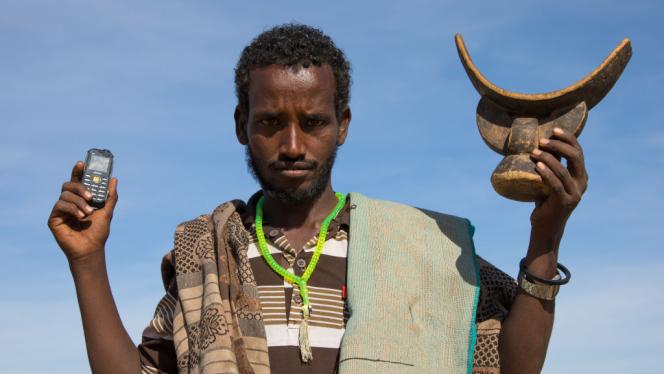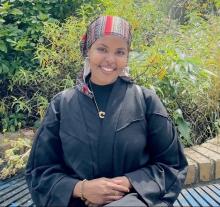Wednesday 20 November 2024
Waa qoloma?

How your tribal identity shapes your social belonging within the Somali community Imagine a world where your clan is the primary way other people in your society relate to you. Your education level, personal values, social status, and achievements can be overshadowed by your clan affiliation. Your clan says a lot about you, and sometimes you might even gain social media followers, respect, and support based solely on your clan identity. Living in a clannist community can be complex and challenging, particularly within the Somali-speaking community. Clans form the foundation of Somali social life and serve as a primary source of social security for many individuals. Consequently, the rise of social media platforms among Somali-speaking people has amplified the influence and prominence of clans and have allowed Somali clans to create their own brands and digitally connect with their audience.
Social media has become a platform where clans showcase their talents, academic achievements, political representation, and social dominance by highlighting prominent individuals within their communities. This often generates negative energy and social media bullying, leading to clan clashes and tensions. For instance, when a Somali diaspora member or local individual wins an international award, scholarship, or political position, people frequently engage in a “tribal investigation” to determine the individual's clan. On social media, people might comment and ask, waa qoloma? which translates to what clan are they from? It is common to see people from different clans claiming the person’s success and achievements, even though the individual earned their accomplishments based on merit—a fact that is often overlooked.
Clannism is also widely viewed as the source of all our problems. But Somalis will say how awful clannism is before making generalised and derogatory remarks about other clans, unveiling in many ways how central it is in how we relate to and think about one another. “Political tribalism”, Abdi Ismail Samatar contends, has become the “organising political formula” for the Somali government. “Somali political leaders and public servants are all “elected” or employed based on their tribal identity,” he says. Social media users often bemoan the fact that Somalia has descended into a series of “clanistans”. The historian Mohamed Isa Trunji has characterised Somalia’s political system as a “clanocracy”. Even Ayaan Hirsi Ali claims she “still identify a Somali (and usually their clan) from across a room.”
The waa qoloma conversation is significant in nearly every Somali family. It is a crucial question asked when announcing a marriage. Families often do not inquire about the person’s character, values, job status, future ambitions, or level of responsibility beyond their clan affiliation. The clan takes precedence, serving as the primary means of understanding who that person is, according to the historical and current role of their clan Traditionally, Somali women have been symbolically used as “tribal ambassadors” to strengthen clan relationships and resolve conflicts between clans. This practice involved offering women in marriage to members of another clan to settle disputes and promote unity. This tradition raises significant ethical and human rights concerns, as it often treats women as commodities rather than respecting their autonomy and rights. However, these cultural norms are gradually fading, allowing many Somali women to freely choose which clan to marry into.
For the past few decades, Somali communities in the Horn of Africa have faced ongoing political instability, climate and environmental crises, human capital migration, and clan conflicts. These issues have significantly impacted the livelihoods of the local population, affecting both their human and social security. Historically, the political structure of governments in the Somali Horn was based on clannism, with Somali clan elders traditionally serving as the legitimate decision-making body.
However, certain clans dominate political, social, and economic spheres and control major social media discussions and discourse. For many anti-tribal movements, the waa qoloma debate on social media represents a stifling of innovation, creativity, and productivity, as it protects and legitimizes individuals who advance their political interests while undermining voices advocating for change, accountability, and transparency. Additionally, these online clan movements often discriminate against other clans while consolidating their own clan power through insults and other forms of clan rhetoric.
Generation Z in Somalia, who are predominantly active on various social media platforms such as TikTok, Twitter, Facebook, and WhatsApp, play a crucial role in promoting their clan narratives through these media. Many Gen Z individuals are digitally and symbolically promoting their clan identities from rhetorical flushes aimed at other clans to the flag-emblazoned bracelets bearing your clan identity. Similarly, the millennial generation, who were largely born during the collapse of the Somali state, also contribute significantly to the propagation of clan identity politics within the Somali community. These clan narratives have motivated certain “tribal warlords” to exploit the system and advance their own political interests.
The power vacuum within the Somali community and the absence of a strong, stable governing body have driven thousands of citizens and youths to rely heavily on their clans. Mary Harper argues in her book Getting Somalia Wrong that “dictatorship was replaced by the rule of the warlord, as powerful clan leaders, supported by wealthy businessmen and mini armies of militiamen, turned much of Somalia into a patchwork.” Consequently, the lack of rule of law and a legitimate government has led people to use their clans as a form of insurance. Often, clan leaders organise themselves to provide border control, security, and other social services for their communities.








